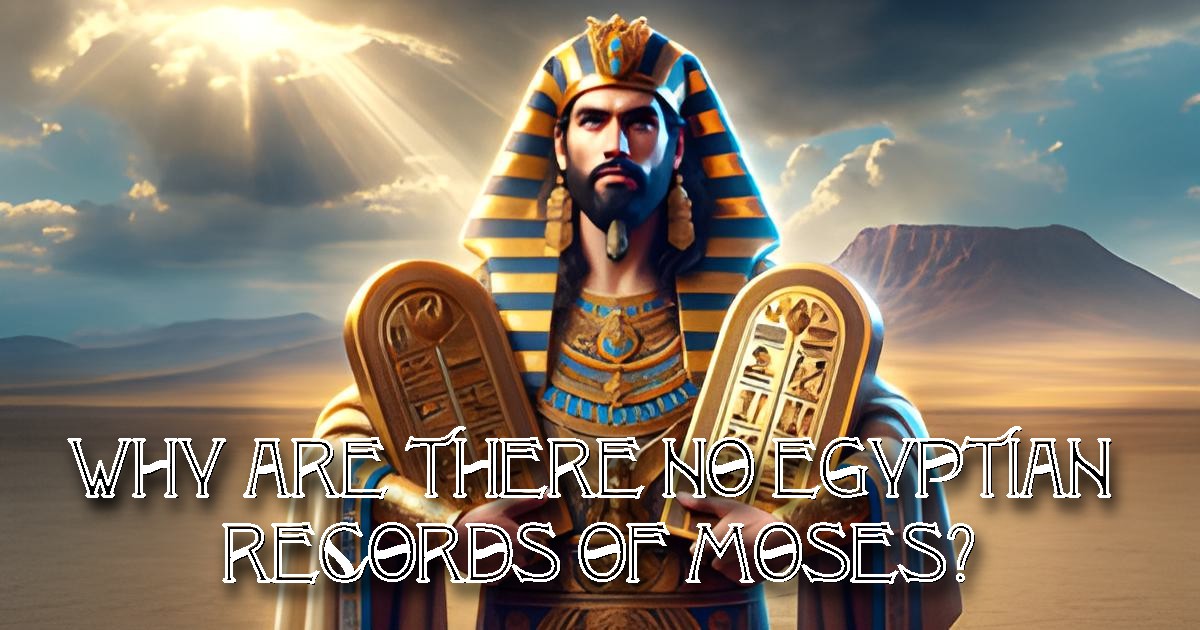The story of Moses leading the Israelites out of Egypt is one of the most dramatic and revered narratives in the Bible. It speaks of plagues, divine encounters, and the miraculous parting of the Red Sea. But a question that rattles the foundation of this epic tale is unsettlingly simple: Why are there no Egyptian records of Moses? Secular investigations into ancient texts and archaeology reveal an answer that challenges traditional beliefs. Scholars like Israel Finkelstein, Neil Asher Silberman, William G. Dever, and others provide insights that are both thought-provoking and controversial.
The Missing Pharaohs: A Silent Historical Record
Egyptian civilization was renowned for its meticulous record-keeping. From grand victories to mundane trade transactions, the Egyptians documented their history in stone inscriptions, papyri, and temple carvings. Yet, as Israel Finkelstein and Neil Asher Silberman emphasize in The Bible Unearthed, there is a conspicuous absence of any mention of Moses, the plagues, or the Exodus in these records. No pharaoh laments the loss of an enslaved population, no scribes record the devastating plagues, and no monuments commemorate the drowning of an Egyptian army in the Red Sea.
Egyptian Historical Pride: Selective Memory or Evidence of Absence?
Some argue that the Egyptians might have deliberately omitted such an embarrassing defeat from their records. However, Donald B. Redford points out that the Egyptians were not shy about documenting military losses and internal strife. For example, the defeat at the Battle of Kadesh is recorded with remarkable detail, including both triumphs and setbacks. The total absence of the Exodus narrative suggests it was not an event that needed to be hidden—it simply never happened.
The Evolution of the Moses Narrative
John Van Seters and Thomas L. Thompson propose that the story of Moses evolved much later than traditionally believed. According to their research, the Exodus narrative likely took shape during the Babylonian exile, centuries after the events it purports to describe. The story served as a unifying myth, reinforcing a collective identity and faith among displaced communities. Its literary structure mirrors other ancient Near Eastern myths rather than historical records, pointing to its function as theological storytelling.
Archaeological Evidence: A Desert Without Footprints
William G. Dever and Ze’ev Herzog highlight that despite extensive archaeological surveys in the Sinai Peninsula, no evidence supports the biblical account of the Israelites’ 40-year journey. There are no traces of large encampments, no artifacts, no graves—nothing to suggest that hundreds of thousands of people wandered the desert during this time. Herzog famously stated, “The Israelites were never in Egypt, did not wander in the desert, did not conquer the land in a military campaign, and did not pass it on to the 12 tribes of Israel.”
The Canaanite Connection: Rewriting the Origins
Lester L. Grabbe and Israel Finkelstein argue that the Israelites did not emerge from Egypt but rather evolved from within Canaanite society. Archaeological evidence shows continuity in material culture between the so-called “Israelite” settlements and earlier Canaanite sites. This suggests that the Israelites were indigenous to the region, gradually developing a distinct identity over time.
A Story Rooted in Myth, Not History
The lack of Egyptian records mentioning Moses is not an oversight; it’s part of a larger pattern pointing to the Exodus as a foundational myth rather than a historical event. Secular scholarship reveals that the story of Moses was crafted to inspire, unify, and teach—not to document factual history. This understanding invites us to appreciate the narrative’s cultural and spiritual significance while acknowledging the difference between myth and historical reality.
Sources:
- Finkelstein, Israel & Silberman, Neil Asher. The Bible Unearthed
- Dever, William G. Who Were the Early Israelites and Where Did They Come From?
- Redford, Donald B. Egypt, Canaan, and Israel in Ancient Times
- Thompson, Thomas L. The Mythic Past
- Grabbe, Lester L. Ancient Israel: What Do We Know and How Do We Know It?
- Herzog, Ze’ev, “Deconstructing the Walls of Jericho” (Haaretz)
- Van Seters, John. In Search of History
- Lemche, Niels Peter. The Israelites in History and Tradition

